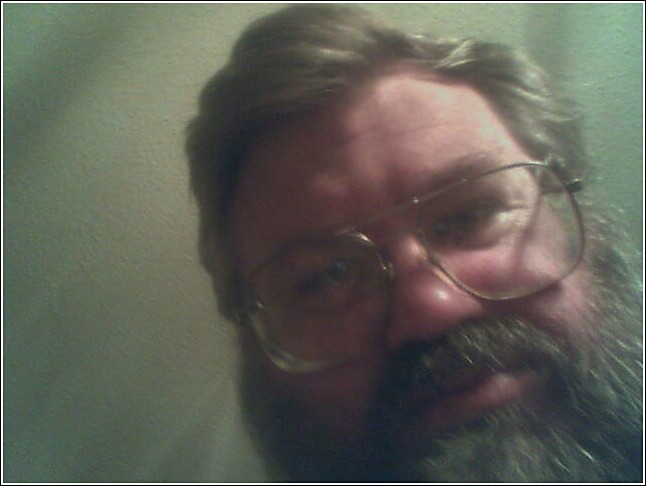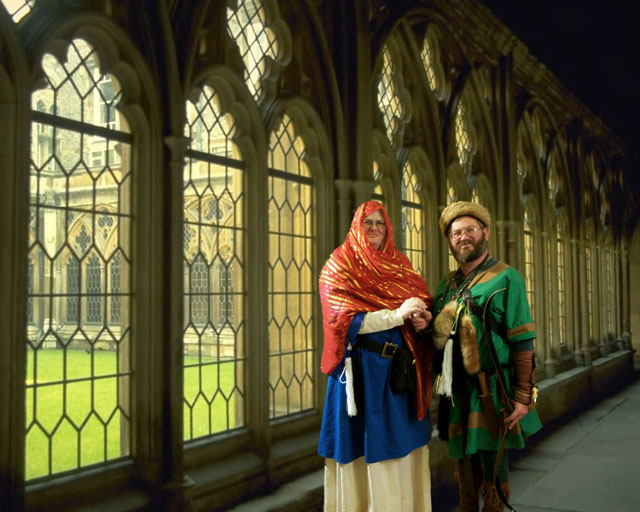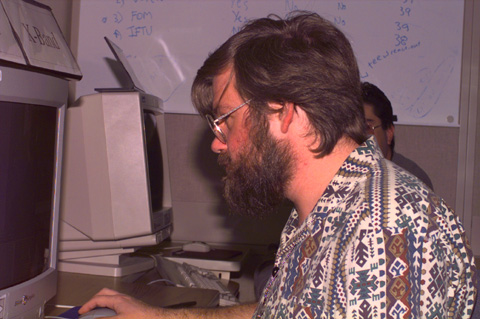

I come from a very literate and literary family. My father earned his PhD in Computer Sciences from the University of Pennsylvania. All my sisters have postgraduate degrees. My eldest sister, Marilyn, has a Masters in Nuclear Engineering from M.I.T., and her husband, Pete, has a doctorate in Aerospace Engineering. My second eldest sister, Barbara, has a Masters in Theology. My next eldest sister, Susan, has a law degree from University of Chicago. I have a Masters in Project Management from Colorado Technical University. Even my wife is working on a Masters degree in Web Development from Denver University.
My family and extended family are quite literary. My wife is a technical editor. My sister, Barbara, was for a time a newspaper editor and the media director for a religious order. (She is now doing missionary work in Alaska) My sister, Marilyn, is a college textbook editor. My uncle, Erv, edited the editorial page for the Memphis Commercial Appeal for decades. My cousin, Richard, has several books published on theology. Writing and the English language are common topics of discussion in his family.
I have studied writing, taking (among other things) Technical Writing and Script Writing at the University of South Dakota. In addition, a course in critique of film imparted a more objective, detached way for me to criticize my own work. The technique involves taking the work apart and critically examining each of the parts. For example, in a film, the parts would include lighting, sets, dialog, music, acting, camera angles, editing, etc. This technique can be easily applied to the craft of writing.
Most of my career has involved technical writing: including writing Software Requirements Specifications, Software Test Plans, System Interface Specifications, Software Test Procedures, Software Management Plans and a considerable number of technical reports. In most circles, being a technical writer automatically disqualifies you for any other kind of writing. Being an engineer who also happens to write is even worse! The combination tends to force you into passive voice sentences and very unfortunate ways of writing. And then there are political battles, such as fighting the Comma-And Mavens.
I was born in San Fernando, California. We moved to Blue Bell, Pennsylvania, shortly thereafter. I went to kindergarten and elementary school at Saint Helena Parish School (which was subsequently closed), a Catholic school. I went to Northboro Middle School, a public school in Northboro, Massachusetts. In that transition, I found that I could coast. The things they were teaching were things I had already learned in the Catholic school. We moved again, this time to La Crosse, Wisconsin. I was again in a Catholic school, and I was very far behind everyone else for my years in public school. Saint Thomas Aquinas High School in La Crosse, Wisconsin was my first high school. My second high school was Thomas Jefferson High in Bloomington, Minnesota. I went to college at the University of South Dakota in Vermillion, South Dakota. I have since lived in Brooklyn Park, Minnesota; Arlington, Texas; and now Colorado Springs, Colorado. I occasionally get to visit Huntsville, Alabama for a week or so at a time.
I do not remember the West coast at all. Moving from the middle-Atlantic area in the suburbs of Philadelphia, to New England (Massachusetts), to the mid-West (Wisconsin), to the upper mid-West (Minnesota, also called East Dakota) was an eye-opening experience. Dialects changed. A "submarine sandwich" became "a grinder" and then became a "Hero." The way people did things changed. The weather changed. I never understood what an "Ice Storm" was until I experienced a New England "Nor'Easter." My mother's chevrolet was literally frozen to the pavement. I never understood real cold until I moved to Bloomington, Minnesota. I saw 24-inches of snow fall in 24 hours and I saw 40-degrees (F) below zero on the thermometer (NOT counting wind chill). I saw several tornados in Minnesota, too. I never understood severe thunderstorms and flash flooding until I moved to Texas, and I never understood a wind storm until I moved to Colorado. In my neighborhood, we had straight-line winds over 80mph, and in that storm, 13 power towers within view of my home were toppled. A neighbor's pole barn was torn apart by the winds, and the sheet metal was scattered all over the neighborhood.
One thing I did notice, despite their customs and despite their dialects: People are people, and are very much the same no matter where you go. This is a very comforting thing. This country is full of very nice people.

Bear was messing with his sister's cell phone and it clicked.
I had the marvelous good fortune to stumble across the audio-visual department of Aquinas High School on my first days as a Freshman. We had just moved to La Crosse, Wisconsin. So, I knew no one in town, let alone in Aquinas High. I saw a small hand-scrawled poster on the wall that I shall forever remember: "Does the thought of plugging extension cords together appeal to you?" What can I say? I am a geek. I was accepted into the audio-visual corps which was a god-send for my whole life. I had the chance to run theater lighting, to thread and run 16mm motion pictures, to run the audio system at the dances and to do all kinds of cool stuff. When we moved to Bloomington, Minnesota, in some ways, I moved to A/V nirvana! Jefferson High had an incredible amount of A/V gear that a small Catholic school could only dream about. I could play with videotape (the old reel-to-reel systems!) and audio mixing. We even got a computer! an Apple II. We had a closed-circuit television system in the school. It worked, but not very well. We had our own cable TV channel and had the freedom to run just about anything we wanted. We spent a lot of time running projectors and televisions around the school and we did other things in support of academics. Still, we had a nerd playground!
I am still an audio-visual fanatic. I have my own sound mixing studio. It is not much but it works. I will admit that mixing MP3 files is not nearly as fun as splicing audio tape. Still, it works. I do not have the time to do too much with video. The only reason we gave up our 19-inch RCA color television is because a friend offered us a good deal on a bigger TV. I am a cheap-skate.

Jodie and Bear in Renaissance costume.
I met Jodie in my last year (1983-84) at the University of South Dakota. I remember meeting her in the Lakota Student Center at the little grill they had therein. While it was not quite love at first sight, it was very close. We were almost inseparable from our first date onward. I was lucky enough to marry Jodie a year later. We have been married for 23 years.
I have a great deal of respect for strong women. A strong woman is not someone who needs to shriek in a shrill voice to be heard. I learned that from Jodie. When I met Jodie, she was a Private First Class in the Army Reserves. By the time she left the reserves, she was a Staff Sergeant (E-6). The only reason she left the reserves was because her knees and feet were pretty badly off. Now that those issues are being resolved, we are both hoping she can return to the Reserves or possibly the National Guard. Jodie is a veteran of Desert Storm, having served with the 341st Medical Brigade in Saudi Arabia. She is a very good shot with a rifle, and she has the guts to tell a General Officer, "I'm sorry, sir, I cannot get you paid for that, because you do not have the documentation." I learned my love of strong women from Jodie. Whenever a movie or television program aires with a strong woman character in it, you can be sure I am in the audience. Xena: Warrior Princess, Witchblade, Rooster Cogburn and the Lady . . . Whatever it is, I will be there. Jodie is why all my fantasy fiction works have strong woman lead characters.
As I said, I graduated from the University of South Dakota. My Bachelor of Science degree was in Computer Sciences and Mass Communications, as a double major. In my senior year, the Mass Communications department moved from the College of Arts and Sciences to the College of Fine Arts. Consequently, I received (for a brief time) a Bachelor of Fine Arts degree. Frankly, the question most asked by people with that degree is "Would you like fries with that?" (Joking) The University did send me the correct degree, but I am not sure they corrected all the records.
I am an Assembly Language programmer. The closer I get to the machine, the better I like it. Get me programming in some weird higher-level language and I get lost. Yes, I can program in Pascal and PL/C. I tried C++ but hated it. In college, I took COBAL but hated it. COBOL is the wordiest language on the planet. I even tried Ada. On the other hand I have programmed in 6502 Assembly, PDP-11 Assembly, 68B09E Assembly, 68010 Assembly and 80186 Assembly, and I programmed a great deal in Z-80 Assembly. I loved them all. In assembly language, there is nothing that the machine can do that I am not allowed to do. In higher-level languages, there are "information hiding" and "object orientation" and "compiler glitches" and a host of other things with which I simply do not want to be bothered.
In my coding years, I had the privilege to code a Z-80 to manage a special Intel Ethernet chip. I coded some debugging software in both 80186 and 68010 to debug an interface between those two kinds of machines. I was most pleased in that my software led to a less-than-1% customer return rate. It also caused the designers to make some modifications so that the hardware would actually work more reliably. I wrote software to simulate a large battery complex. I wrote software to simulate a message switching box. I will tell you this, though: coding is one of the most frustrating experiences one can have. Getting something to work was often a relief, not a thrill.

Bear analyzing rocket flight data.
I found a good niche as a test engineer. I work in the Defense business and some of the testing gets pretty weird. I am planning to write a book on all the silly things that happen during testing. I have watched 12-inch-diameter free-flight rockets fly down-range at White Sands. Those were the only rocket launches I saw in person. The remainder of the launcher and missile tests have been via video or telephone connection. It is still a thrilling thing to witness a flight test. It can also be quite exhausting. The pressure to produce is high. The cost of making a mistake is high. The hours are long. The amount of information that needs to be processed in real time and in near real time is great. Despite all that, when the hardware hits the target, there is a huge thrill. It is the kind of thrill that makes men with three stars on their shoulders (Lieutenant General) jump and cheer. Getting code to pass a software test is not at all in the same league.
I do not have the temperament to actually sit on console for a flight test. It takes someone with much more nerve than I have. I sat on a flight test console for a time, and that time generated memories I never want to surrender. But I am a realist. I made a mistake during a flight test and hit a button too soon. It was a case of bad judgement and I am not flying a test console any longer--and rightly so!
Let me give you an example of the right person to fly a flight-test console. Tom D. was as nice a guy as you'd ever want to meet. He flew a flight console. At the time, we were using Silicon Graphics workstations and part of the basic software was a Mah-Jongg game. Flight-tests often include long hours of boredom, while we wait for someone to fix something. The Mah-Jongg game helped pass the time. Tom D. was always well prepared for long sessions on-console. He brought with him at least one jar of peanut butter, a butter knife and at least one box of saltine crackers. He would kick back in his chair, kick off his shoes and prop his stocking feet on the desktop. Then, he would consume his peanut butter and crackers while playing Mah-Jongg. One particular mission night, there was a delay due to weather. So, Tom kicked back as he always did. In very short order, "The Boss" came into the room and screamed at Tom to get the Mah-Jongg off the screen. It turns out that Tom was running a particular console that was on the big screen in the conference room, and the General was not too happy about games being played on flight night. Here is what made Tom a great man to have on a flight-test console. Tom simply shut off the game, and went back to his peanut butter and crackers. He didn't even take his stocking feet off the desktop. He was completely unphased that the General was unhappy. He really was not upset that "The Boss" had yelled at him. Now, THAT is a flight-test man! When things go awry, I want Tom fixing them, because Tom will not get flustered and do the wrong thing.
I am now in a position to support flight-tests, instead of being directly in the flight-test myself. I love my job. It is the best day-job I have had ever. Whatever the data analysts need to support a flight-test or a ground-test, it is my job to give it to them. Phones, heat, power, network drops, computers, audio, video, walls, head phones, intercoms--anything they need, I figure out how to get it to them. Effectively, I am back to my old job from high school, running projectors and televisions around the building. Flight-tests are complicated things.` The analysis of flight-tests requires some pretty wild hardware. Between tests, I figure out what the analysts will be needing in the future, either long-term or for the next flight. During the tests, I run around and fix things as they break.
I started writing when I was living alone in a one bedroom apartment. Jodie was selling the house in our old town. As we were paying for both a house and an apartment, we had very little money for anything else. Still, I was able to splurge and buy a paperback book on a character in which I was interested. There were so many things wrong with that book, I was amazed it had been published. I literally said aloud, "I can write better than that!" Then, I said to myself, "You just made a boast. Prove it." I stood from my bed, where I had been reading, turned on my PC and began to write. I have been writing ever since.
Writing is now something I feel compelled to do. I loathe the people who write "fan fiction," because it makes it
more difficult for me to gain acceptance as a serious author. I have vowed not to self-publish. If my work is not good
enough for a publisher, then I need to find ways of improving my work. In fact, if my work is not good enough to deserve a
hard-bound edition, then I have more work to do. I believe working the craft of writing is much like working the craft
of photography. I must endeavor to improve for the remainder of my life. I do not want to mimic the authors who create
increasingly sloppy work as they publish more books. (That is why I am fascinated with Ellis Peters, whose Cadfael
books are consistenly excellent!) I will probably publish books at a slower rate than publishers will wish.
The "Comma-And Mavens" are a class of character I have met in the course of my technical writing. These folk insist that every "And" must be preceded by a "Comma." They obviously have not heard of "Laurel and Hardy," but probably have heard of "Laurel, and Hardy." What would they do with the sentence, "The best duos in history include Heckle and Jeckle, Laurel and Hardy, Bogie and Bacall, George and Gracie, Abbot and Costello, and Gilligan and the Skipper." What a nightmare they would make of it. The problem is that once they are disabused of the notion that every "And" must have a "comma," then they are completely lost as to what to do with "and's". Once they get lost, they return to the "Comma-And" rule even more firmly. I work with Engineers, not linguists. These poor folk believe that everything must conform to specific rules. Well, people are not machines and they do not speak as machines. The written language is a reflection of the way people speak. It generally follows rules but not always.
I favor an "open" style of punctuation. If a comma is not needed to make a sentence more clear or more smooth, or if a comma is not needed to represent the way someone is speaking (i.e. dialog), then I delete the comma. On the other hand, if I get an editor who adds commas, I probably would have no issues with that editor--unless the comma changes something in the way the work actually reads.
Back to Main Page